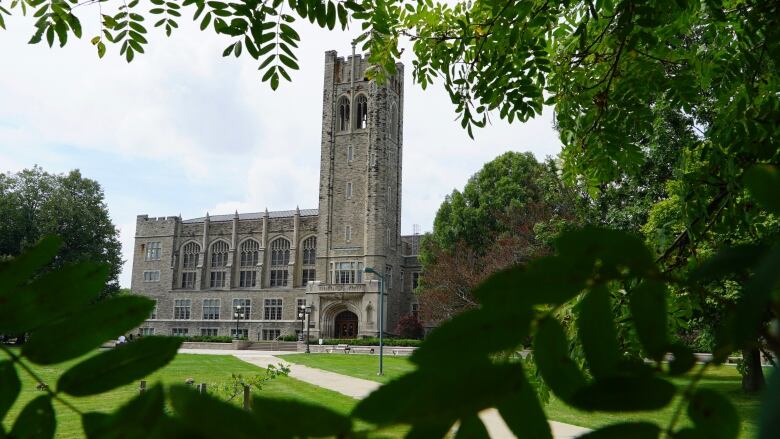Grad school applications soar as Canadians rethink post-pandemic life
At Western University, applications to some programs are up 30 per cent over last year

Canadians are applying to graduate schools in increasing numbers, a phenomenon often seen during times of economic downturns but with some significant differences during a global pandemic, experts say.
"I've had experiences during economic downturnsand typically applications go up, but I've never lived through a global pandemic, so I didn't know what would happen," said Sheldon Grabke, the registrar and director of student services at the The Ontario Institute for Studies in Education.
"We saw right away this was different. We were inundated, and we've had a 30 per cent increase in applications. Whenthe economy goes down, people get worried about their jobs or they lose their jobs, and they think about going back to school."
That's exactly what appears to be happening at two of Canada's largest graduate schools.
- Western University's law program had a 31 per cent increase in applications over last year, and a 37 per cent increase over 2019.
- Masters programs at Western are seeing 13 per cent increases in applicants, and doctorates a 25 per cent increase.
- The University of Toronto's law school has seen applications go up 24 per cent.
- Graduate program applications are up 32 per cent compared to the same time last year.
Rethinking the future
Carol Dyckhas spend the last three months in a small apartment in Berlin, Germany, where her husband is completing a sabbatical. Under strict lockdown, she's had a lot of time to think and plan and ruminate about the future.
"When I've been looking into work, it's been in the non-profit sector, and currently, that sector is really suffering and it's not the best time to getting into that sector," Dyck said. "I've had a lot of time to sit and research, and it seemed like a good time to take a shift in what my career goals should be, and the pandemic definitely spurred that on."
Dyck has applied to two different doctorate programs at Western University, hoping to focus on the law and ethics of arctic mining.
"I do have two kids, my possibilities of going somewhere to do a PhD are extremely limited. The pandemic opened up a number of possibilities, because I am able to do things remotely. I suspect there will be a lot of remote learning in September, and because we've been doing it for a long time now, we've shifted our idea of normal. So, if I'm at home, I might as well be working toward a degree."
Dyck's line of thinking is in line with why applications go up during economic downturns.
The perceived cost of giving up a job, or pivoting to something new, can be lower during times of uncertainty, like a global recession or pandemic, said Sangeet Chowfla, the CEO of the Graduate Management Admission Council, which oversees admissions testing for most of the world's graduate business schools.
"This is consistent with past recessionary environments. People are often in uncertain hiring situations, and if graduate studies were a thought on the horizon, they gravitate toward doing them now," Chowfla said.
"This is a good time to take some time out of their careers, invest in their education and come back when the economy is stronger."
The fact Canadians are turning to education during a time of uncertainty and downturn is a positive, said OISE Dean Glen Jones, whose area of expertise is post-secondary education
"For some individuals, this will be a chance to fulfil a life-long dream of education, independent of their careers," he said. "They'll say, 'I've always been interested in this particular subject, I've always wanted to focus on it for a significant period of time and this is the chance for me to do that.'"
Remote learning, or even needing to be self-directed, may have kept people away in the past, but this past year's changed landscape might have some rethinking what they're capable of.
"For some people, it's just about getting a different job, but for others, people think of this as opening some doors, to see what's on the other side. If they can do it online, which is how we've been doing everything recently, it changes how they think about it, that you don't have to commute to go into a classroom, or move across the province to go to a particular institutions."
With files from Chris Franklin













_(720p).jpg)


 OFFICIAL HD MUSIC VIDEO.jpg)
.jpg)



























































































